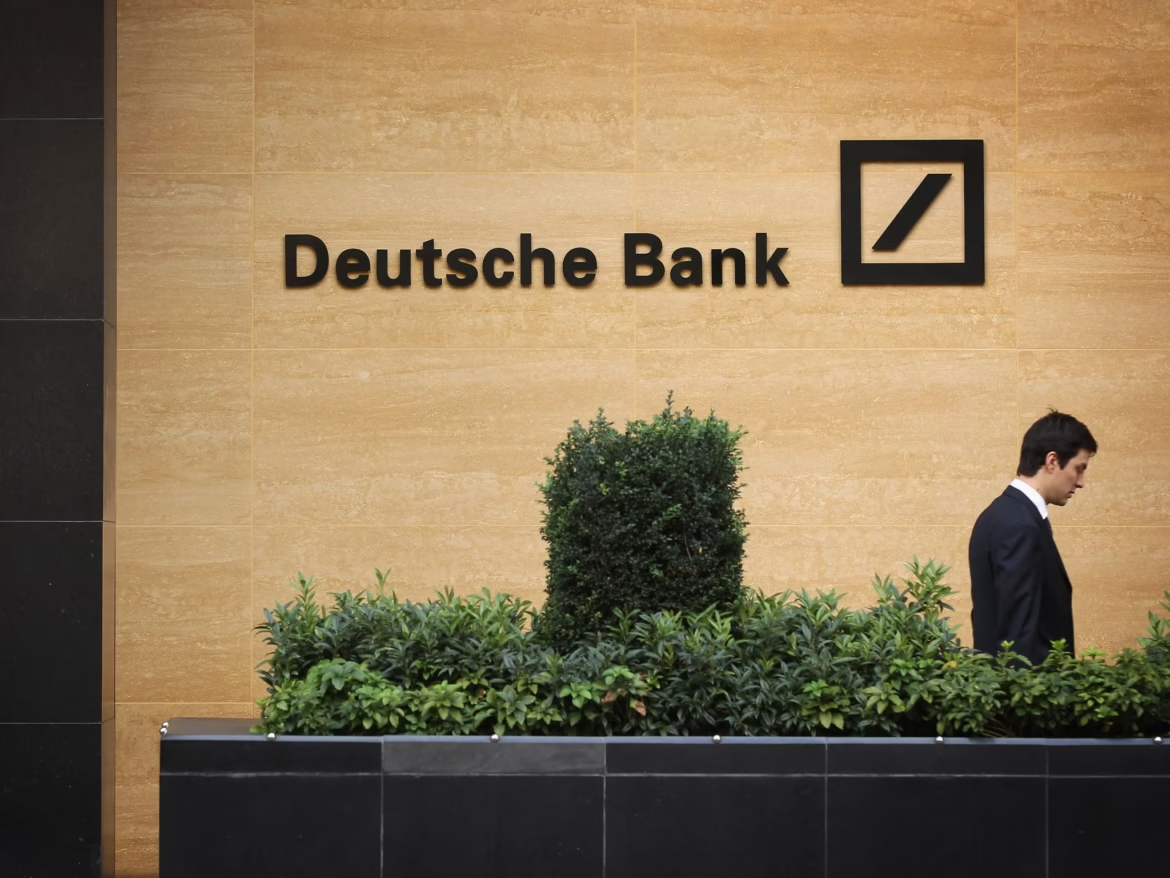Deutsche Bank, the financial powerhouse based in Germany and a leader in global banking, has been hit by a 4% drop in its stock price following a concerning warning about rising costs. The announcement on Thursday came as a shock to investors, who had been hoping for a more optimistic outlook from one of Europe’s largest and most well-established banks. The new projection from Deutsche Bank highlighted that its operational costs would consume a significantly larger share of its income this year than initially anticipated. This development has sparked fresh concern regarding the bank’s ability to maintain its profitability in the face of escalating financial pressures.
The bank’s leadership cited multiple factors contributing to the surge in costs, with particular emphasis on the ever-increasing expenses tied to regulatory compliance, restructuring efforts, and investments into new technology. As the global banking sector faces intense scrutiny from regulatory bodies, maintaining compliance has become more expensive, creating an unexpected financial burden for institutions like Deutsche Bank. At the same time, the bank is undergoing significant restructuring aimed at making its operations more streamlined and technologically advanced, which is proving to be costlier than expected. While these initiatives are aimed at long-term sustainability, they are weighing heavily on the bank’s bottom line in the short term.
Investors had hoped that the bank’s financial planning for the year would be more efficient, but the warning has raised doubts about the bank’s ability to keep its expenses in check. With market volatility at play and inflationary pressures increasing, the bank now expects its costs to continue to rise, making it more difficult for Deutsche Bank to meet its original earnings projections for 2025. This unanticipated rise in expenses has prompted a revaluation of the bank’s financial outlook, and many are questioning whether it can regain its footing without sacrificing future profitability.
Despite these challenges, Deutsche Bank remains steadfast in its belief that it can weather the storm. The lender has emphasized that its core business segments—investment banking, asset management, and wealth management—remain essential drivers of revenue, and its efforts to modernize the business through technology will eventually yield significant returns. However, the question remains whether these strategic efforts will be enough to offset the additional financial strain that is now expected to persist throughout the year. Analysts are cautioning that the elevated costs may prevent the bank from capitalizing on growth opportunities in the short term, and this could hinder its ability to remain competitive in a rapidly changing financial landscape.
The news of the rising costs comes at a time when the global banking industry is already under significant pressure due to factors like rising interest rates, inflation, and the ever-changing economic environment. While many financial institutions are focused on maintaining their profitability, Deutsche Bank’s predicament highlights the fine balance between investing in future growth and managing current financial obligations. The ability to optimize costs while navigating ongoing regulatory changes and economic challenges is critical for the bank’s long-term success.
As the global financial community watches closely, it is clear that Deutsche Bank must take decisive steps to manage its expenses and safeguard its market position. There is widespread speculation that the bank may need to explore more aggressive cost-cutting strategies or refocus its investments to ensure that it is able to continue on its growth trajectory without further hindering its financial performance. While Deutsche Bank is confident that it can recover from this setback, the coming months will be crucial in determining whether it can implement the necessary changes to sustain itself in an increasingly complex financial world.
The warning from Deutsche Bank has reverberated throughout the financial markets, not only because of the bank’s pivotal role in the global economy, but also because it reflects broader trends that are affecting banks worldwide. As many financial institutions grapple with a combination of regulatory hurdles, market uncertainty, and rising operating costs, the news serves as a reminder of the growing challenges faced by the banking sector in today’s environment. Deutsche Bank’s ability to manage these challenges will serve as a critical benchmark for how other financial institutions navigate the complexities of the modern banking world.
Stay ahead with the latest news on global innovation, leadership, entrepreneurship, business, and tech. Join us on WhatsApp or Telegram for real-time updates. Have a report or article? Send it to report@theinnovationtimes.com. Follow us on X (Twitter) Instagram LinkedIn Pinterest and Facebook for more insights and trends.



